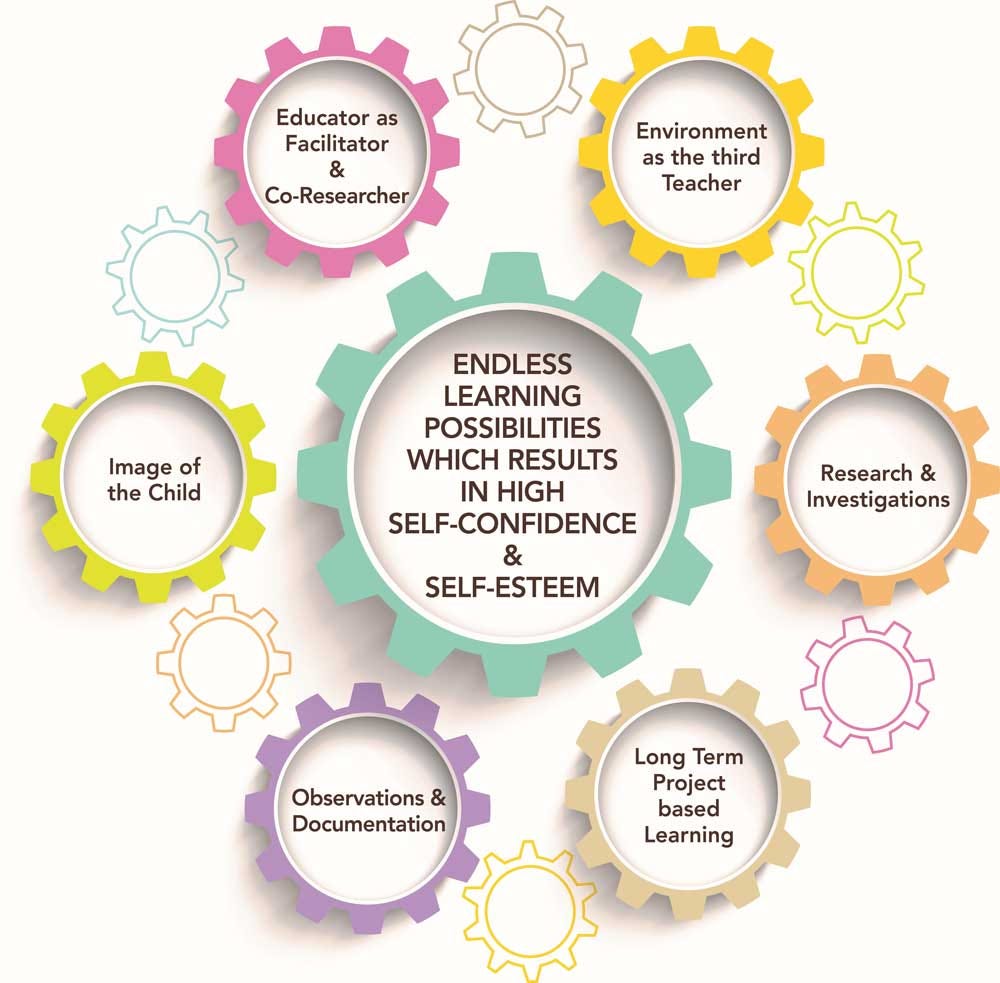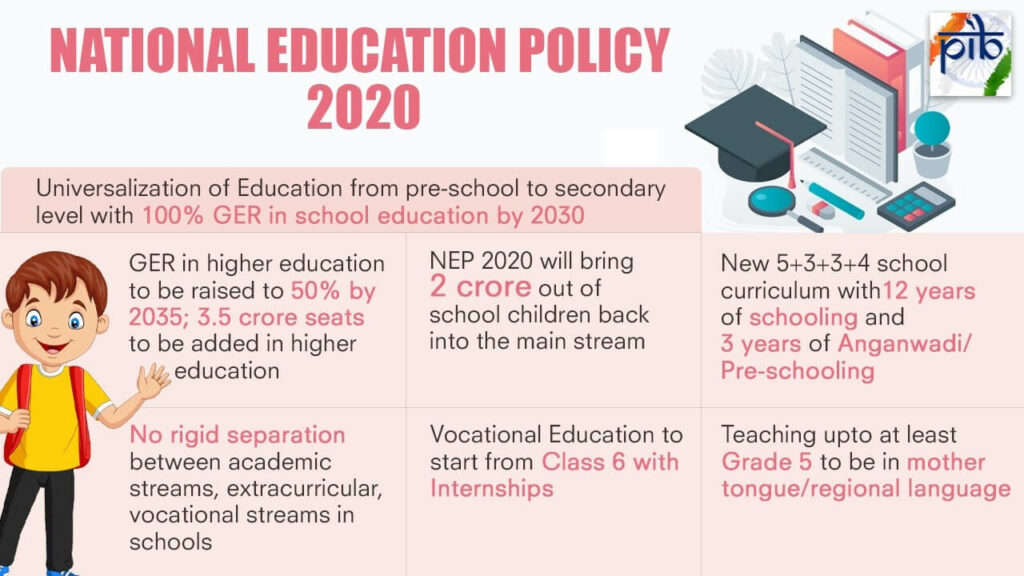According to a report by the World Bank, only 2.3% of the Indian workforce has received formal skill training. In contrast, around 92 % of employers believe that a skills shortage is one of the biggest hindrances to productivity, staff turnover, and employee satisfaction. Additionally, only 28% of workers are currently enrolled in training programmes, despite the fact that an astounding three out of four workers lack the digital skills required by businesses. This highlights the need for skill-based education that can equip students with practical skills and knowledge in high demand in various industries.
In India, recent changes in the education system have garnered attention and praise from educators, policymakers, and industry leaders alike. From skill-based education to the Reggio Emilia approach to the National Education Policy 2020, these changes aim to create a more flexible, multidisciplinary, and holistic education system that equips students with the skills and knowledge they need to succeed in the 21st century. These changes are necessary to prepare students for a rapidly evolving world where critical thinking, creativity, and problem-solving skills are highly valued.
Marketing In Asia recently wrote about how the British Education system is obsolete and why it is important for us to break that mold and it looks like India is finally freeing itself from the clutches of the West. In this article, we will explore some of the recent developments in the Indian education system and how they are shaping the future of education in India.
The Reggio Emilia Approach: Empowering Children as Learners

It’s a child-centred philosophy that originated in Italy after World War II, and it’s gaining popularity among educators and parents who are looking for a more engaging and personalised learning experience for their kids.
One of the coolest things about this approach is that it places a lot of emphasis on documentation. Children and teachers work together to create records of their learning and experiences, which they then reflect on and analyse. This helps kids develop a deeper understanding of their own learning process, and it helps teachers tailor their teaching methods to better meet the needs of individual students.
Reggio Emilia-inspired schools are starting to pop up in India, and they’re promoting creativity, collaboration, and critical thinking among students—all essential skills in the 21st century. In these schools, the environment is carefully crafted to encourage exploration, discovery, and creativity, which acts as the “third teacher”, after teachers and parents. Children are encouraged to learn by doing, and teachers act as facilitators, guiding the learning process instead of dictating it.
Finally, the approach places a huge emphasis on social interactions. The classroom environment is designed to encourage collaboration and communication among students, which helps develop important social and emotional skills. And in today’s world, where strong communication and collaboration skills are essential for success in many fields, this focus on social interactions is more important than ever.
The CBSE’s Initiative: Equipping Students with Practical Skills
As we all know, the world is changing at an unprecedented pace, and industries are demanding a new set of skills that traditional Indian education, following in the footsteps of the British education system, fails to address. That’s why the CBSE took the historic decision to introduce subjects like AI, design thinking, coding and financial literacy which are in high demand in various industries.
One of the most remarkable changes introduced by the CBSE is the inclusion of AI as a subject. This will provide the students interested in learning about emerging technologies with the right platform, to begin with. Coding, for instance, is a highly sought-after skill in the IT industry, and the demand for coders is expected to grow in the future. By introducing coding as a subject, the CBSE is helping to prepare students for the future job market.
The CBSE has also made other significant changes to promote experiential learning and reduce the emphasis on rote memorisation. For instance, the board has reduced the syllabus for various subjects to allow more time for self-study and revision. Additionally, the CBSE has announced changes in the assessment pattern, with more weight given to internal assessment and practical exams. This is an essential step towards promoting a more holistic approach to education, where students are assessed based on their practical skills, and not just their ability to memorise information. All in all, the CBSE initiative is a fantastic step towards creating a more future-ready and employable workforce in India and has received a warm welcome from educators and industry leaders alike.
The National Education Policy 2020: Transforming the Education System

After thorough consultation with various stakeholders, the Union Cabinet approved the NEP 2020 in July 2020. This policy aims to address the challenges faced by the current education system and create a more inclusive, flexible, and future-ready education system.
One of the most exciting features of NEP 2020 is its focus on multidisciplinary and experiential learning. This policy recognises the importance of developing critical thinking, problem-solving, and life skills among students. The NEP aims to create an education system that promotes creativity, innovation, and entrepreneurship instead of rote learning and memorisation. The policy also emphasises the need to provide vocational education and training to students from an early age to make them more employable and skilled.
The NEP 2020 also seeks to leverage technology in education to provide more accessible and personalised learning experiences for students. The policy envisions the use of online platforms and digital tools to deliver quality education to students, regardless of their geographical location. This has become especially relevant during the COVID-19 pandemic, where online learning has become the norm for millions of students in India.
The NEP 2020 has received widespread support from educators, policymakers, and industry leaders. Global Education & Training Institute (GETI) and Global Classroom Private Limited (GCPL) founder Dr. Sunita Gandhi said: “One of the intriguing aspects of the NEP is its plan to support dropouts (roughly 2 crores of them) academically and in terms of infrastructure by developing various methods of learning that combine formal and informal education.”
Another major change that the National Education Policy 2020 (NEP) has brought about is the introduction of a new structure for school education. The 5+3+3+4 structure, which replaces the earlier 10+2 structure, divides the school years into different stages of learning. The first five years (age 3-8) are dedicated to the foundational stage, where the focus is on play-based learning, discovery, and activity-based learning. The next three years (age 8-11) are the preparatory stage, where the focus is on experiential learning and exploratory learning. The next three years (age 11-14) are the middle stage, where the focus is on multidisciplinary learning and promoting critical thinking and problem-solving. The final four years (age 14-18) are the secondary stage, where students can choose from a variety of subjects and engage in vocational education and training. Other reforms, such as instruction in the mother tongue till class 5 and special provision for socially and financially challenged groups in the new policy, have also been well-received by international organisations and experts.
Afterword
This new structure reduces the curriculum load and promotes experiential learning, which is expected to reduce the stress on students and promote a more holistic and enjoyable learning experience. Education professionals and experts have generally welcomed this change because they think it will result in a more comprehensive and innovative educational system.
The NEP 2020 has already started to have an impact on the education system in India. As a result, the CBSE has introduced several new subjects, including artificial intelligence, design thinking, and financial literacy, as part of the NEP’s focus on multidisciplinary learning. The policy has also led to the creation of the National Education Technology Forum (NETF), which aims to promote the use of technology in education and foster innovation in the sector. With the NEP 2020, India is poised to create a more dynamic and future-ready education system that will empower students to succeed in the 21st century.
Also read: The Tug Of War Between Indian Culture & Western Influence: Navigating The Past, Present, & Future
With NEP 2020, the emphasis is returning to the traditional “gurukul pedagogy,” with a multidisciplinary holistic education, applied learning, and formative assessment, according to Rajesh Panda, Founder & CEO, Corporate Gurukul. It is also wonderful to see that students can design their own individualised learning pathways based on their interests and passions. Universities won’t be able to support themselves solely on student tuition fees; instead, research funding from businesses and the government will take centre stage.
The recent changes in the Indian education system represent a significant shift towards a more holistic and future-ready approach to education. The Reggio Emilia approach, the CBSE’s initiative to introduce skill-based subjects, and the National Education Policy 2020 are all steps in the right direction towards creating a more inclusive and flexible education system. These changes are necessary to equip students with the skills and knowledge they need to succeed in the 21st century. By embracing these changes, India has the potential to become a global leader in education, producing a skilled and employable workforce that can drive the country’s economic growth and development.










